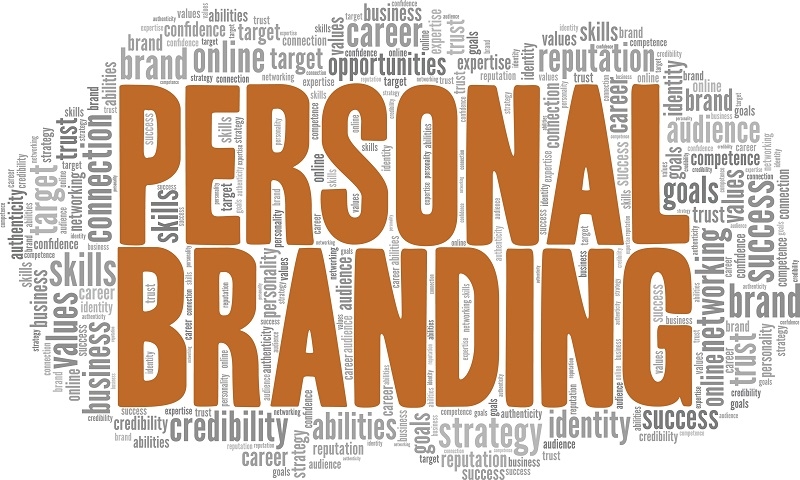
Learning is essentially a lifelong process in the present world. The new technologies, evolving industries, and tough competition have made it mandatory for someone to keep on learning in order to survive in the market. But learning on one's own may not always be beneficial for one’s career. You have to let the world know about your growth—and this is the point where a personal learning brand comes into play.
With a personal brand, you can communicate your learning journey, demonstrate your curiosity, and confirm that you are a person who keeps improving. It is less about putting on a show and more about showing progress.
It refers to the way you depict yourself as a learner. It is your digital persona, which reflects your commitment to personal growth, acquiring more knowledge, and mastering new skills.
Consider it your own learning narrative—how you have been transformed through online courses, employment, and life. If your personal learning brand is learning design, it might consist of sharing evidence of your mastery of selected online tools, documents showing completed projects, and creative lessons learned.
The process of creating such a brand makes your drive, curiosity, and openness to change visible to the world. These are traits that employers and coworkers would highly value.
Self-branding as a lifelong learner is a demonstration of the fact that learning is not limited to the time after school or college. You keep on updating your skills, and at the same time, you do not hesitate to explore new ideas. Such thinking brings you several advantages:
Lifelong learning is not just an attribute of the learner; rather, it is the learner's identity. This concept would make you stay confident, curious, and future-ready.
Here’s how you can build a personal learning brand online:
It is advisable that before you set out to create your personal brand, you should think of the kind of learner you want to be. Having a definite direction will help you in deciding which courses to take, projects to do, and content to consume that will support your goals.
You should ask yourself the following questions:
To illustrate, a marketing specialist may opt to concentrate on Learning SEO, content strategy, or analytics. An engineer in software might take up cloud computing or AI tools. Once there is a clear focus in your learning journey, it will be a lot easier for others to understand your brand.
One of the simplest methods to acquire new knowledge and simultaneously commit to self-growth is branding yourself via online learning. It is a good idea to take personal brand online courses if you want to add more structure and credibility to your efforts.
Choose the platform that offers the most recognized content, such as Coursera, LinkedIn Learning, or Udemy. Pick topics that fit your objectives. Upon completion of a course, share your main takeaways with the world—what you learned, how you intend to use it, and what challenges you faced.
Your online presence is the base of your personal learning brand. It is a way for people to see your development in life. The simplest place to start is LinkedIn, but you can also utilize platforms like Medium or X (formerly Twitter).
Here are some tips on how to enhance your presence:
You don't have to post every day—just be consistent and authentic. Eventually, people will start associating your name with curiosity and knowledge.

To brand yourself as lifelong learner, don’t just learn—share. The truth is, people love to hear how you grow and learn. Even small posts about what you discovered in a course or project can inspire others.
Here are some simple ways to share:
Example: “Just completed a module on data visualization—came to the point that storytelling is the key in presenting analytics. Looking forward to using this in my next project.”
Such content reflects the writer's learning and eagerness, both of which are essential to creating a strong personal brand.
The creation of a good personal brand for career growth doesn’t happen alone. You need to connect with others who are similarly involved in the field of learning or teaching. Look at their posts, ask questions, and share your thoughts.
Participate in learning clubs, virtual events, or study groups. The more you participate, the more people recognize your learning brand which is a great benefit of networking. Also, as a result of partnering with others, you get to broaden your outlook and be introduced to new gadgets and ideas.
Networking is not about accumulating contacts, but rather about increasing your potential together.
When done, personal brand online courses, make a thoughtful display of them. Integrate your certifications into your LinkedIn profile or website. However, apart from just giving the course title, convey the value the course has brought to you.
For example, instead of "Completed Excel for Business Course," it might be more effective to say "Mastered Excel for advanced financial reporting and dashboards." What is being demonstrated here is the real skill, not just the participation.
A few words like these can work wonders for your learning brand in that they show the brand not just as a simple credential, but as proof of your ability.
The online learner's personal brand starts to develop strength through value contribution. One of the most effective ways to display your expertise is to share your discoveries and experiences, in writing, in videos, or in tutorials.
Just start with something small. For example, posting:
Such pieces of writing help in building the writer's authority. Over time, those who you have as followers will no longer see you just as a learner but also as a person who sponsors the community.
The most important thing is to be authentic. When developing a personal learning brand, do not act like you know it all. Actively share your struggles and all of your growth.
If it is difficult subject matter, tell your story and share your perspective. People are more likely to relate to real-life stories than flawless ones.
A personal learning brand is more than an online profile—it’s your story of growth. When you brand yourself as a lifelong learner, you basically show the world that you are a person who possesses and appreciates the qualities of progress, curiosity, and adaptability.
Through this, you will be able to turn your learning into your identity. It’s not about being the smartest, but it’s about being consistent, authentic, and always open to learning.
This content was created by AI